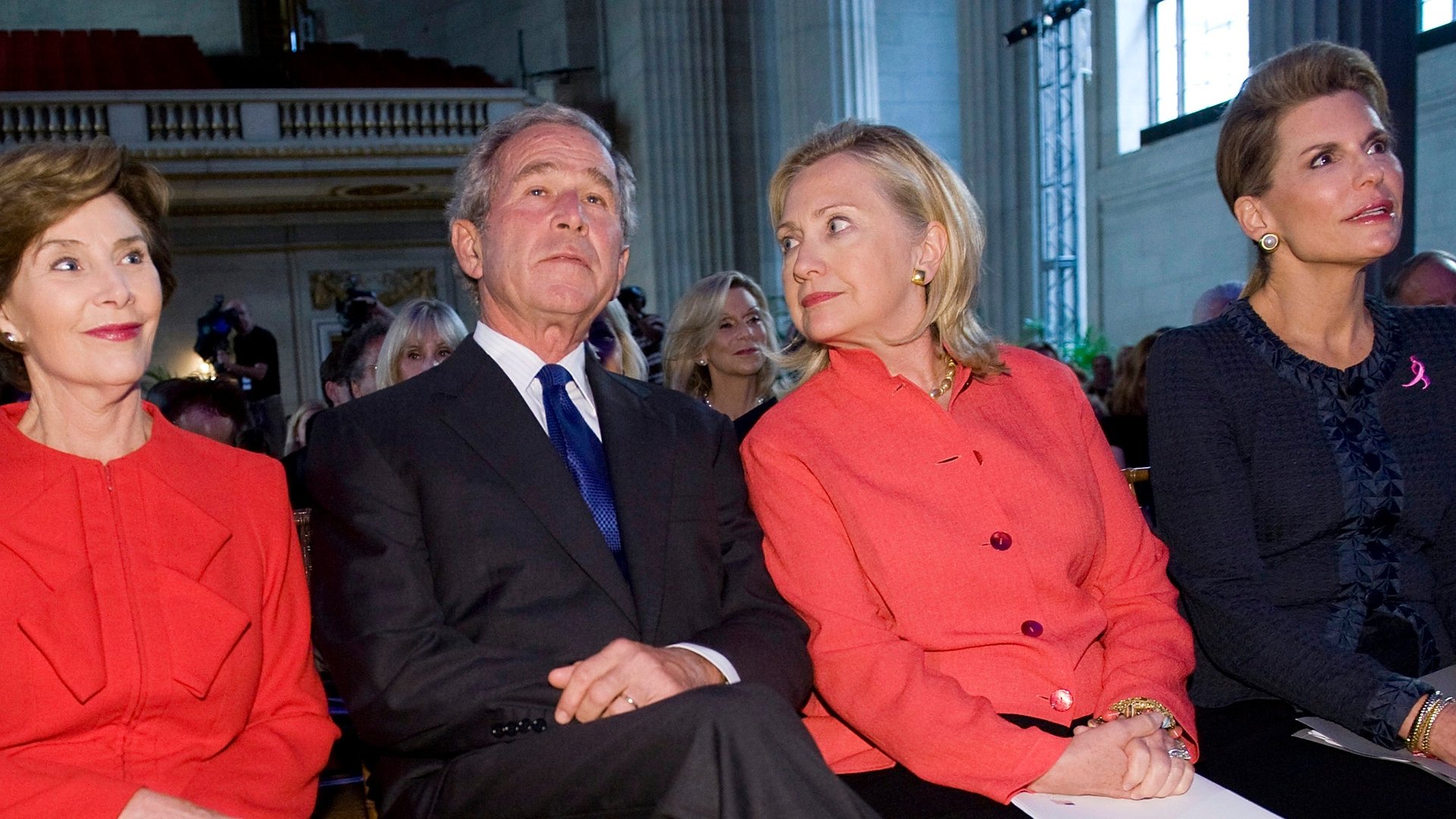Two months before 9/11, the Bush administration was told “the attacks will be spectacular”
The 2016 presidential campaign has US voters debating which government officials to hold responsible for past security failures: Hillary Clinton faces vociferous scrutiny for her actions before the Benghazi, Libya attacks on Sept. 11, 2012, while Jeb Bush has been criticized for claiming that his brother, former president George W. Bush, “kept us safe” despite his failure to prevent the Sept. 11, 2001 attacks in the US.


The 2016 presidential campaign has US voters debating which government officials to hold responsible for past security failures: Hillary Clinton faces vociferous scrutiny for her actions before the Benghazi, Libya attacks on Sept. 11, 2012, while Jeb Bush has been criticized for claiming that his brother, former president George W. Bush, “kept us safe” despite his failure to prevent the Sept. 11, 2001 attacks in the US.
The Spymasters, a new documentary on the Central Intelligence Agency airing on Showtime Nov. 28, has produced a startling account of a meeting in July 2001 between national security advisor Condoleezza Rice, CIA director George Tenet, and his chief counter-terror aide, Cofer Black:
That morning of July 10, the head of the agency’s Al Qaeda unit, Richard Blee, burst into Black’s office. “And he says, ‘Chief, this is it. Roof’s fallen in,’” recounts Black. “The information that we had compiled was absolutely compelling. It was multiple-sourced. And it was sort of the last straw.” Black and his deputy rushed to the director’s office to brief Tenet. All agreed an urgent meeting at the White House was needed.
Tenet picked up the white phone to Bush’s National Security Adviser Condoleezza Rice. “I said, ‘Condi, I have to come see you,’” Tenet remembers. “It was one of the rare times in my seven years as director where I said, ‘I have to come see you. We’re comin’ right now. We have to get there.’”
Tenet vividly recalls the White House meeting with Rice and her team. (Then-president George W. Bush was on a trip to Boston.) “Rich [Blee] started by saying, ‘There will be significant terrorist attacks against the United States in the coming weeks or months. The attacks will be spectacular. They may be multiple. Al Qaeda’s intention is the destruction of the United States.’”
While this meeting was not included in the 9/11 Commission’s investigation into the Bush administration’s actions before the World Trade Center attacks, a look at the report, published in 2004, is instructive. It finds numerous, if often vague, warnings delivered before the attacks, including directly to the president, but little was done. From page 265:
In sum, domestic agencies never mobilized in response to the threat. They did not have direction, and did not have a plan to institute. The borders were not hardened. Transportation systems were not fortified. Electronic surveillance was not targeted against a domestic threat. State and local law enforcement were not marshaled to augment the FBI’s efforts. The public was not warned.
To put this in perspective, when conservatives argue that Hillary Clinton was negligent ahead of the Benghazi attacks, they argue she should have known about the multiple warnings that US diplomats in Libya passed along to the diplomatic security staff in the State Department, though none were passed directly to her.
Compared to the multiple warnings received by President George W. Bush ahead of the 9/11 attacks, its easy to see a double-standard.
Americans voters, for all their love of “the buck stops here” swagger, seem willing to forgive institutional failures underneath political leaders, with Bush winning re-election in 2004 while Clinton leads the 2016 Democratic primary and competes well in hypothetical general election match-ups.
But government officials have scrutinized Clinton with far more vigor than Bush, which seems hard to justify in light of this new account. There were just two Congressional investigations into the 9/11 attacks, including the eponymous Commission, which finished its work less than three years after the attacks. There have been eight different inquiries into the Benghazi attacks, with one still ongoing more than three years later.